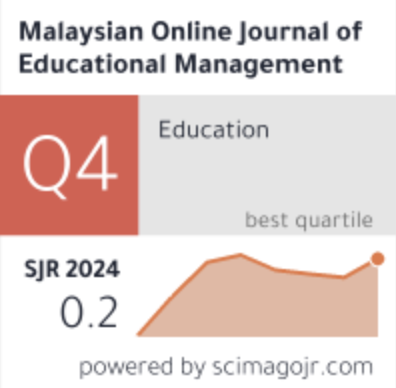DEVELOPMENT AND VALIDATION OF THE STUDY CIRCLE MODEL IN HIGHER EDUCATION: THE APPLICATION OF STRUCTURAL EQUATION MODELING
Abstract
The study circle (Halaqah) program has been introduced by one of the Islamic universities in Malaysia to disseminate the knowledge and skills for overcoming the drawbacks and challenges among students, which is a unique system for learning. However, there has been no research conducted to evaluate the students’ motivation to involve in the study circle program. Hence the purpose of this study is to develop and validate the measurement model of study circle for assessing the students’ confirmation and motivation to involve in study circle program in higher education. A total of 200 undergraduate students were involved in the study circle program. They were from various bachelor degree programs such as Islamic Revealed Knowledge and Human Sciences, Economics, Engineering, Education, and Information and Communications Technology. The questionnaires’ validity was performed using Exploratory Factor Analysis (EFA). The findings as analyzed by Structural Equation Modelling (SEM) revealed that the overall fit indices showed a satisfactory fit to the empirical data: χ2 (df = 86) = 184.971; p = 0.000; RMSEA = 0.068; CFI = 0.931; TLI = 0.916. The parameters were free from offending estimates. The results also contributed toward successful integration of study circle by developing and validating the measurement model of study circle in higher education. The significance of this study stands on its contribution to developing and validating the study circle model that could be applied by future researchers in the diverse context of higher education.









